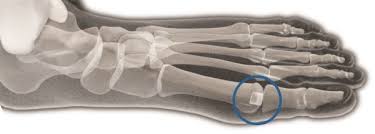The Cartiva Synthetic Cartilage Implant Litigation
In the realm of medical advancements, the introduction of the Cartiva synthetic cartilage implant by Wright Medical marked a significant step forward. Designed to alleviate joint pain, particularly in the hallux, or big toe, this innovative device mimics the function of natural cartilage. The primary objectives were pain mitigation and joint mobility restoration, offering countless patients a glimmer of hope. However, unexpected complications arose when several patients reported significant adverse effects post-implantation, leading to an onslaught of lawsuits against the manufacturer, Wright Medical. This comprehensive analysis will explore these lawsuits, the specific allegations, and the broader implications for medical device manufacturers and consumers alike.

1. Claims of Negligence and Misleading Advertising:
A cornerstone of the lawsuits filed against Wright Medical is the assertion of negligence. Plaintiffs contend that the company did not conduct sufficient and comprehensive testing of the Cartiva implant prior to its release. The essential premise is that a more rigorous testing procedure could have potentially identified the complications that later surfaced among patients. Such allegations introduce questions about the responsibility of manufacturers in ensuring their product's safety, balancing the need for innovation with the imperative of consumer well-being.
The negligence accusations dovetail with claims of misleading advertising. According to the plaintiffs, Wright Medical depicted the Cartiva implant as a safe and effective solution for joint pain. However, the plaintiffs argue, the company did not have a robust portfolio of empirical evidence to substantiate these claims. This situation brings to light the tension between the desire to market a product effectively and the requirement to provide accurate, evidence-based information to the consumers and medical community.
2. Allegations Regarding Design and Manufacturing Deficiencies:
The lawsuits also draw attention to alleged deficiencies in the design and manufacturing of the Cartiva implants. Plaintiffs have reported instances of implants breaking down or degrading prematurely. This degradation has been associated with a host of complications, including acute pain, inflammation, and in certain cases, bone damage. Some patients were compelled to undergo further surgical procedures to remove and replace the defective implants. The allegations call into question the manufacturing processes and quality control measures in place at Wright Medical and highlight the potential risks patients face when such measures are inadequate.
3. Assertion of Inadequate Risk Disclosure:
A significant part of the litigation revolves around the claim that Wright Medical did not adequately disclose the potential risks associated with the Cartiva implants. The plaintiffs argue that both patients and medical professionals were insufficiently informed about potential side effects and complications that could arise post-implantation. This lack of information, the plaintiffs suggest, may have led them to opt for the Cartiva implant when they might have considered alternative treatments had they been fully apprised of the risks. The allegations raise serious ethical questions about the responsibilities of manufacturers in ensuring transparency about the potential risks of their products.
Personal injury claims constitute a substantial portion of the lawsuits filed against Wright Medical. These claims typically involve patients who experienced severe complications following the Cartiva implantation. Complications ranged from bone loss and device failure to inflammation and chronic pain. In severe cases, the fallout from these complications required additional surgical interventions, including the drastic measure of joint fusion. Such personal injury claims underscore the human toll of these alleged failures and bring into sharp relief the potential costs associated with faulty medical devices.
In pursuing these lawsuits, the plaintiffs seek compensation for a range of damages. These include not just medical expenses incurred due to additional treatments and interventions, but also lost income attributable to their health complications. Moreover, plaintiffs often seek compensation for pain and suffering, attempting to quantify in financial terms the physical and emotional distress they have endured.
The Cartiva lawsuits, as they stood as of September 2021, have significant implications for the landscape of medical device manufacturing and regulation. These cases underscore the vital importance of rigorous testing and accurate, transparent marketing of medical devices. They highlight the necessity for manufacturers to engage in thorough risk assessment and management, and to ensure they communicate these risks effectively to both the medical community and potential patients. The lawsuits also serve as a stark reminder to consumers of the potential risks associated with novel medical devices and emphasize the importance of well-informed decision-making in matters of personal health.




